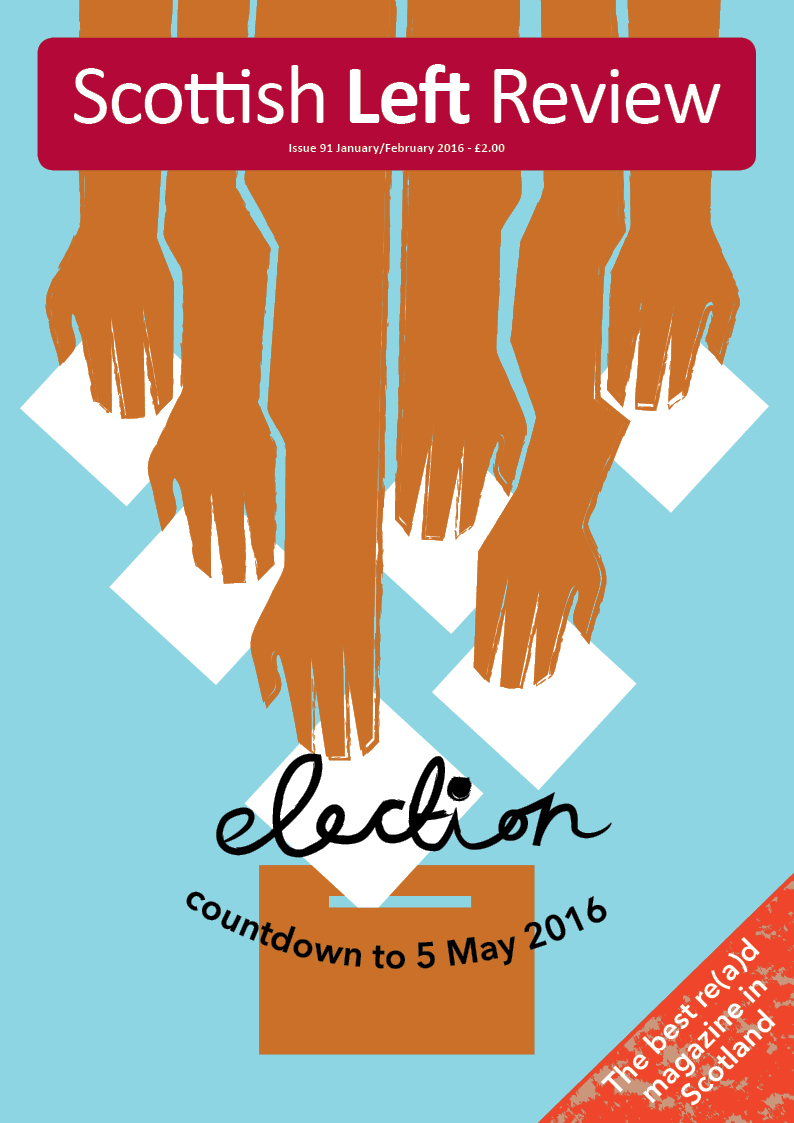2016 – same old struggle
 Though it’s customary to say ‘Happy New Year’, we know there’ll be nothing particularly happy about 2016 unless there are major changes in society. Part of achieving that will be about what happens on 5 May 2016 so we lead on this. We asked members of the progressive parties and organs of civil society what they’d like to see in the party manifestos. But we also know that 5 May 2016 will not be the final matter. Hence, other articles cover wider politics in Britain, Europe and elsewhere.
Though it’s customary to say ‘Happy New Year’, we know there’ll be nothing particularly happy about 2016 unless there are major changes in society. Part of achieving that will be about what happens on 5 May 2016 so we lead on this. We asked members of the progressive parties and organs of civil society what they’d like to see in the party manifestos. But we also know that 5 May 2016 will not be the final matter. Hence, other articles cover wider politics in Britain, Europe and elsewhere.
But for the time being, we have to start somewhere – and so we asked contributors to concentrate a number of issue for the manifestos, namely, i) Trident; ii) austerity; iii) human rights; iv) Trade Union Bill; and v) taxation. Recalling our last issue, we also asked for two reflections upon analysis of Corbyn’s victory and developments since then. We did similarly with Sturgeon’s speech on the occasion of her delivering the third annual Jimmy Reid Foundation lecture.
Currently, three things stand out about i) Scottish politics, ii) Labour and iii) imperialism. First, the politics of the campaigns and manifestos of progressive parties must be more heavily focussed upon more than just stopping things getting worse. So much of current left politics from Scottish Labour and the SNP is about stopping the Tories doing ‘x’ or ‘y’. We need to raise our sights and say we want that and more, much more. Take for example, the SNP Scottish Government’s exclusion of blacklisters from tendering for public contracts from April 2016 or its maintenance of the Scottish Agriculture Wages Board. Good but not good enough – because the Welsh Assembly Government has already excluded blacklisters since2013 and maintaining the wages board in itself does not end low pay.
Although, the SNP remains Teflon like in the polls despite losing two of its MPs and being subject to mounting criticism on a range of issues, it does appear to show some signs of responding to progressive criticism (such as on income tax, tax credits compensation, the council tax, and Sunday shopping regulation). But again this is more in the vein of potentially stopping things getting worse than start making things better. This is because what passes for social democracy in both its Scottish Labour and SNP forms searches for social justice within the confines of existing power and interest structures. So social justice is never conceived in terms of wealth distribution from one class (the ruling class) to another (the working class) – and it is scarcely ever conceived in terms of stopping one class (the ruling class) exploiting the other class (the working class).
Second, Corbyn has still to find his mojo because the new way of doing the ‘new politics’ can only take him so far until it becomes obvious there’s a lack of hard substance. This means taking the initiative overall and doing so must comprise taking many initiatives. Unfortunately, John McDonnell’s ‘socialism with an iPad’ was nothing more than reheated Keynesianism (see Guardian 19 November 2015). Without measures to redistribute the wealth created by this particular state intervention, it will simply and mostly go to those that already have it – hence the phrase ‘money begets money’. There was certainly no socialism involved in this policy launch. The decision by Jeremy and John to not countenance local council ‘needs budgets’ because of their unlawfulness is another disappointment. Both need to make the case for the state owning and controlling the commanding heights of the economy for the benefit of the majority. Without that, the prospects for winning in 2020 let alone building effective resistance now are not good. These are the very things to undercut internal opposition to Jeremy and John.
Third, on Syria, many progressives commented the vote to start aerial bombardment showed politicians ‘hadn’t learnt the lessons of Iraq and Afghanistan’. They are right when they meant bombing ‘does not work’ because it creates more suffering, instability and hatred. But these well intentioned people were completely wrong in thinking politicians are capable of learning in a logical, dispassionate way.
The vote to bomb – Labour MPs included – reflects three things, namely, power, material interests and ideology (and their maintenance and extension). Ruling class politicians and their acolytes cannot be expected to learn anything other than what tactics are better or worse in advancing and defending their interests. That is why building a bigger and more influential anti-war movement is vital because only through pressure not logical argument will pro-war politicians change course. This will not be easy as it is only when body bags come home in sufficient numbers resultant from ground wars or fighting foreign wars which gravely affect living standards back home that anti-war movements become mass movements.
Finally, an erratum – the article in SLR 90 was by John, not Jim, Slaven. Apologies there.



